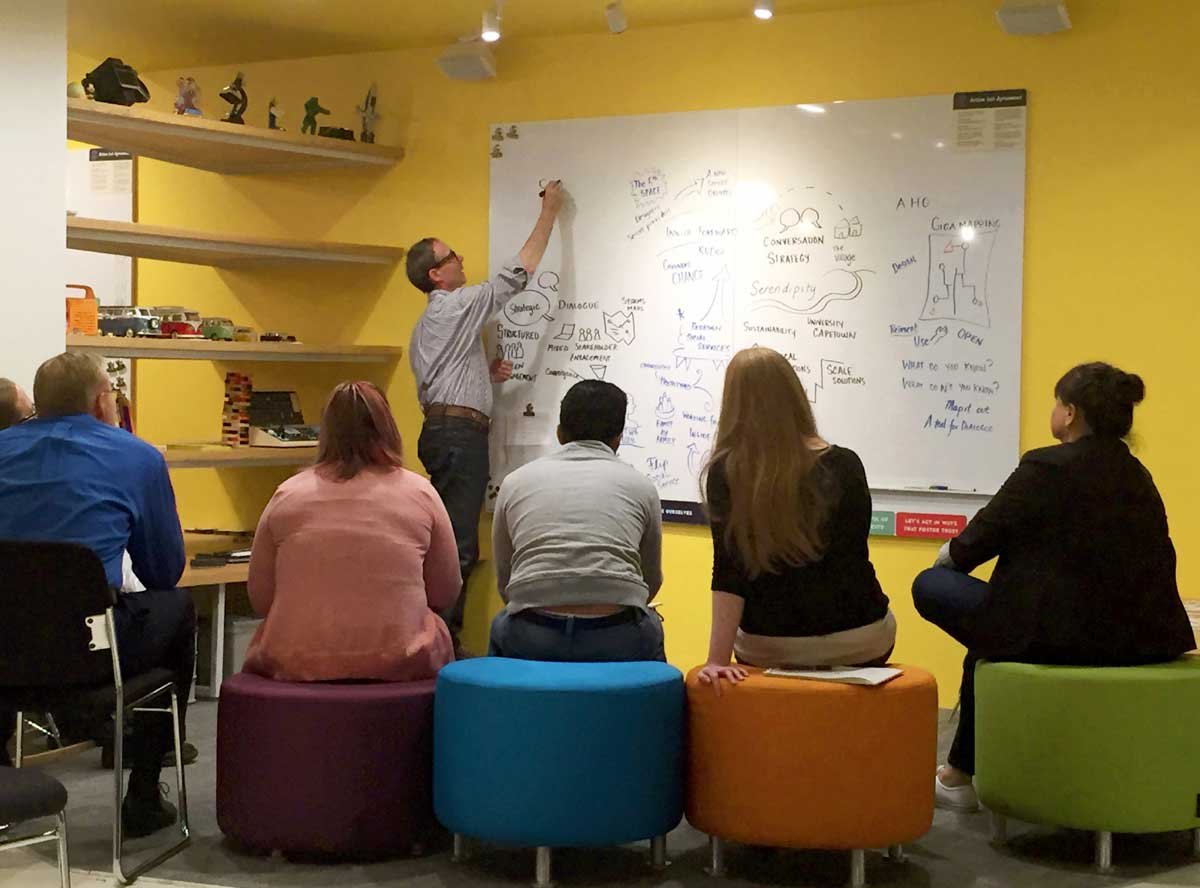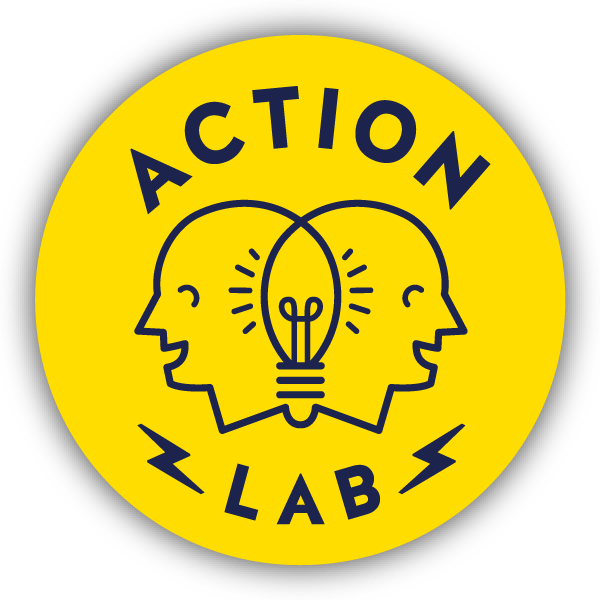
Social Innovation
What is Social Innovation

Social Innovation Explorations
Our skilled facilitators are ready to steward you and your team through a social innovation process that dives deep into a complex challenge and results in promising solutions co-designed with your community. No social innovation lab is the same. They can range from single day sprints to multi-month or even multi-year explorations.
What is a Social Innovation Lab?
Rather than just talk about an issue, a social innovation lab helps facilitate making ideas tangible and testable. By testing proposed solutions before investing in pilots, it helps a collective surface assumptions that would have caused bigger problems if left unchecked and saves money and time. In essence, a social innovation lab is a collaborative problem solving approach that helps a diverse collective make sense of root causes of a complex challenge and then generate possible solutions that can be stress tested with real world people and systems who are affected. A powerful byproduct of social innovation labs is that they tend to generate rich relationship building of participants, and deeper shared understanding of complex problems- all essential ingredients if trying to make real systems change.
What are Complex Challenges?
Complex challenges are issues our world and organizations face that are full of paradoxes and defy simplistic answers. They are characterized by a low level of agreement on what the root of a problem is and often entail contradicting perspectives on what might be the best way to address it. These types of challenges are complex because “right” answers or solutions depend on the many varied perspectives of a collective trying to make a change.
Is Social Innovation Just a Trendy New Fad?
Nope. Some design and systems methods of problem solving may be new, but ways of diverse communities collaborating, listening, and committing to being open to possibilities are rooted in ancient traditions from around the world. As a social innovation lab involves broadening the view of a current problem and generating many possible solutions, they are generally non-linear, and holistic in nature. In these labs, ways of being and reflecting on interdependence in systems often have links to ancient indigenous and non-western epistemologies.
What Typically Emerges From Our Labs?
Every one of our labs is unique however there are generally a few key deliverables that are generated:
Portfolio of Prototypes: Low cost, low risk proof of concepts, that save you money in the long run. Co-designed and tested with your organization or community and show promise of being developed into potential pilots with an eye for scaling down the road.
Learning Reports: Easy to read syntheses of what was learned that help you share your work and demonstrate its value to others. We integrate developmental evaluation into all our labs and have been mentored by and work closely with leading developmental evaluation expert Mark Cabaj.
Rich Stakeholder Learning: Lab participants gain a deeper understanding of the complexity of the issue and what actions might be possible for making progress on it. This learning can have tangible, positive ripple effects in a system after a lab closes.
A Catered Approach that Fits Your Challenge
We work with our clients to uncover the right approach based on how complex a challenge is, how much time is possible, and capacity within the system to engage in a lab process.
Our approach has evolved over the years and has been influenced by key leader and founder, Ben Weinlick’s, graduate research about think tanks in social service design as well as practical social innovation lab approaches captured in Think Jar Collective’s Social Innovation Lab field Guide. Below are some key components of our approach.
Systemic Design
This approach is a mashup of human centered design and systems thinking approaches. Systems thinking is about the big picture view of a challenge and uses methods to explore what might be underlying root causes to complex issues. While human centered design helps with gathering on-the-ground perspectives and insights from people with lived experience.
Weaving in Indigenous Knowledge
In all our labs, to varying degrees, we recognize and center Indigenous knowledge. This might involve utilizing our Treaty Renewal and Reflection Space located in the Action Lab, or equitably involving Indigenous leaders and Elders throughout a lab process. See Edmonton Shift Lab as an example of our work that carefully and intentionally wove in Indigenous knowledge throughout the entire lab process.
Multi Stakeholder Engagement while Centering the Voices of those with Lived Experience
Our approach involves learning in multiple ways from people with lived experience of a complex challenge. It also involves literature reviews, interviews, learning by hanging out with people in context (ethnography), and design methods like prototyping, journey mapping, and systems mapping to look at root causes. In complex challenges we understand you can’t just learn from one perspective, it takes multi stakeholder perspectives from as many parts of a system as possible. Wherever appropriate to involve marginalized people in co-design and participatory research we are deeply committed and insist on budgets being developed that provide equitable compensation and strengthen relationships.


